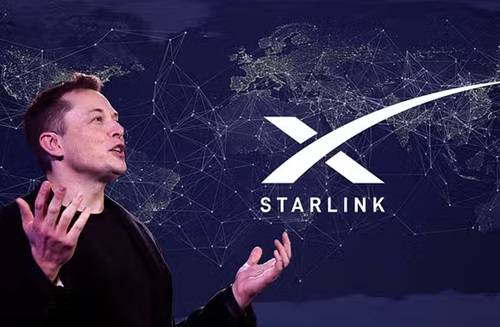Elon Musk Explains Why Starlink is ‘Sold Out’ in Accra and Other African Cities
In a revealing statement this week, Elon Musk explained why Starlink, the satellite internet service operated by his company SpaceX, is “sold out†in several African cities, including Accra, Ghana. The high demand for the service, which aims to provide fast, affordable internet access in remote and underserved regions, has overwhelmed SpaceX’s ability to meet the needs of consumers in key markets on the continent.
Musk, known for his ambitious ventures, from electric vehicles to space exploration, outlined the challenges and factors contributing to the unexpected demand during a virtual conference with African leaders. Starlink’s rapid expansion across Africa has been met with both excitement and logistical hurdles, as the company strives to deliver on its promise of global connectivity.
Starlink’s Popularity in Africa
Since launching its service in Africa in mid-2022, Starlink has received a warm reception, particularly in cities with unreliable or expensive internet access. Starlink promises speeds of up to 100 Mbps with low latency, bypassing the need for traditional ground-based infrastructure, which is often sparse or underdeveloped in rural and remote areas. Its satellite-based internet service is seen as a game-changer for many parts of Africa, where high-speed internet is scarce and the cost of data can be prohibitive for most consumers.
Accra, along with other major cities like Lagos, Nairobi, and Cape Town, quickly became focal points for Starlink’s African expansion. However, Musk admitted that the company was caught off-guard by the overwhelming demand for Starlink subscriptions in these regions.
The ‘Sold Out’ Challenge
During his remarks, Musk explained that the sudden surge in interest, particularly in countries with large populations and rapidly growing tech ecosystems, was one of the key reasons for the service being “sold out.†He noted that, while Starlink has been deploying satellites at an accelerated rate to meet demand, the infrastructure needed to expand service to all of Africa is still being developed. “We just underestimated the demand,†Musk acknowledged. “Starlink’s popularity in certain African countries, including Ghana, has far exceeded our expectations.â€
In cities like Accra, where internet reliability has been a longstanding challenge, Starlink’s satellite-based system has been embraced by both individuals and businesses eager for more stable connectivity. However, due to the limited number of user terminals available, the waiting list for Starlink subscriptions in these cities has become extensive.
Challenges and Future Expansion Plans
Musk also discussed the practical difficulties in scaling Starlink’s service across Africa, citing factors such as regulatory hurdles, the need for partnerships with local governments, and logistical challenges in deploying the necessary hardware. While Starlink’s satellite coverage is global, ensuring that users in diverse environments, from crowded urban centers to remote villages, can access reliable service requires tailored solutions.
“Expanding Starlink in Africa requires a lot more than just sending up satellites,†Musk explained. “We need local partnerships, infrastructure support, and we need to make sure we’re complying with the regulations in each country.†Some African governments have expressed concerns about regulatory oversight and potential market disruptions, particularly in countries where state-run telecoms hold a monopoly on internet services.
Despite these challenges, Musk is optimistic about the future of Starlink in Africa. SpaceX is ramping up its efforts to launch additional satellites and provide more ground terminals to meet demand. Musk noted that Starlink is also exploring the possibility of opening local manufacturing and distribution facilities across the continent to streamline operations and bring down costs.
A Transformative Force for Africa
Starlink’s expansion is part of Musk’s larger vision to help bridge the digital divide in developing regions, particularly in Sub-Saharan Africa, where internet access has been limited. In countries with underdeveloped infrastructure, Starlink could be a game-changer, enabling greater access to education, e-commerce, and healthcare services.
For many Africans, Starlink represents a transformative opportunity. “The internet is a lifeline for economic and social growth in Africa,†said Abena Dede, a tech entrepreneur in Accra who was one of the first to sign up for Starlink. “With better connectivity, we can do more, learn more, and innovate more.â€
While Starlink’s current shortage of service in major African cities like Accra has disappointed some users, Musk’s commitment to expanding the service remains clear. The company has already begun scaling up its satellite launches and plans to make additional terminals available in the coming months. As Musk emphasized, “The demand is there, and we’re doing everything we can to get more users online.â€
As Starlink works through these growing pains, it holds the potential to dramatically change the way Africans access the digital world, helping millions leapfrog traditional internet infrastructure and accelerate economic development on the continent.




No comments yet
Be the first to share your thoughts!